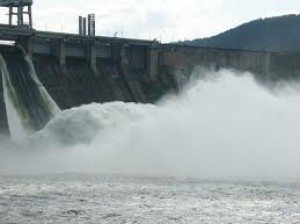Turkey Reiterates Commitment to Southern Corridor with Trans-Anatolia Pipeline
On December 26, 2011, Turkey’s Energy Minister Taner Yildiz and his Azerbaijani counterpart, Natig Aliyev, signed a memorandum of understanding on the construction of the Trans-Anadolu natural gas pipeline. The Trans-Anadolu consortium will be formed by the State Oil and Gas Company (SOCAR) and Turkey’s BOTAS and TPAO. While the Azerbaijani side will hold 80 percent of the shares, the Turkish participants will control the remaining 20 percent, but the stakes might change over time, as the consortium will be open to participation by other international energy companies. The construction work is scheduled to start in 2012 and be completed in 2017, when the Shah Deniz-II is also expected to become operational. The pipeline will have an initial annual capacity of 16 billion cubic meters (bcm), which could be increased to 24 bcm. The 6 bcm capacity will be used for consumption in Turkey’s western regions, while the rest of the throughput will constitute Azerbaijan’s exports to Europe. Since Turkey will retain the re-export rights for its imports from Azerbaijan, the total volume of gas available for European markets could increase depending on the market conditions. Though the construction costs will be determined after feasibility studies, Yildiz estimated these costs at around $5 billion (Anadolu Ajansi, December 26, 2011).
This development raises many interrelated issues about the future of bilateral relations, as well as the EU’s Southern Corridor project seeking to diversify European natural gas supplies tapping into Caspian basin reserves.
With this decision, Turkey and Azerbaijan took another step to cement their evolving strategic partnership, while Ankara also reconfirmed its Baku-centered South Caucasus policy. Energy occupies a major place in both countries’ ambitious foreign policy agendas. While Azerbaijan is eager to capitalize on its developing hydrocarbon reserves to emerge as a major regional actor in the South Caucasus, Turkey has sought to use its geographic location as an asset to establish itself as a major transportation corridor for oil and gas from the Caspian basin and Central Asia as well as the Middle East.
Given Azerbaijan’s need for a reliable export route and Turkey’s interest in sustainable throughput to feed its ambitions to become an energy hub, there are economic and strategic imperatives forcing the two countries to forge a closer partnership in the energy sector, which is further strengthened by overlapping perspectives on regional issues. Such a shared vision led to the construction of the Baku-Tbilisi-Ceyhan pipeline marketing Azerbaijani oil globally and the Baku-Tbilisi-Erzurum pipeline exporting Azerbaijani gas to Turkey, part of which is re-exported to Greece by using the Turkish grid. With the successive energy deals signed in recent years, including a rising volume of Azerbaijani investments in Turkey’s energy sector, and deepening political dialogue such as the establishment of a high level strategic cooperation council, the two countries are healing the frictions caused by Turkey’s thwarted normalization efforts with Armenia.
Currently, there seems to be a strong determination to develop joint energy projects and turn this partnership into a solid axis in the South Caucasus and beyond. Natig Aliyev’s remarks that with the trans-Anatolia project the two countries will work in European energy markets together reflected this shared vision (www.ntvmsnbc.com, December 26, 2011).
Moreover, the implications of this development for the EU-backed Southern corridor remain a matter of controversy. The competing projects including Nabucco, Interconnector Turkey-Greece-Italy (ITGI) and Trans-Adriatic Pipeline (TAP) submitted their bids to the BP-led consortium operating the Shah Deniz field in October 2011. While Azerbaijan and the consortium were expected to make their decision, the trans-Anatolian project has altered the equation in the ongoing competition to secure access to Azerbaijan’s export volumes.
To complicate these calculations even further, Turkey also moved to sign an accord with Russia by the end of 2011. An agreement finalizing Turkey’s approval for the construction of South Stream in its territorial waters in the Black Sea was signed in Moscow by the heads of BOTAS and Gazprom, overseen by Yildiz and Prime Minister Vladimir Putin. With this decision, which Russia had been expecting for over one year, Turkey removed its objections to the South Stream project, which Russian sources expect to be completed by 2015. In return, Yildiz claimed that he secured guarantees from the Russian side to resolve the dispute over the western pipeline in terms favorable to Turkey, especially including a reduction in the price for gas imports from Russia (Anadolu Ajansi, December 29, 2011).
The Turkish government has faced the criticism that by taking these controversial steps it is effectively killing the Nabucco project, which it claimed to have deemed as a strategic priority (Hurriyet, December 31, 2011). For its part, the Turkish government has been arguing that the trans-Anatolian project was in fact complementary to Nabucco and Southern corridor projects, as it will reduce the costs of the other projects (Anadolu Ajansi, December 26, 2011; Yeni Safak, November 19, 2011).
Ankara considers that it has fulfilled its responsibilities towards the Nabucco project by granting the necessary permissions earlier for its construction on its territory. The recent deal on the trans-Anatolian project in that context reiterates that Turkey would not be the deal-breaker in Southern corridor projects, as it effectively resolves issues pertaining to the transit of Azerbaijani gas. More importantly, the willingness of the BP-led Shah Deniz consortium, for Azerbaijan and Turkey to undertake a major portion of the transportation corridor might allow Nabucco and other projects to redesign themselves on scalable terms. Now it will be up to other Nabucco partners to do their part, readjust to the new conditions, and find a supply source, which remains the main obstacle before the project.






